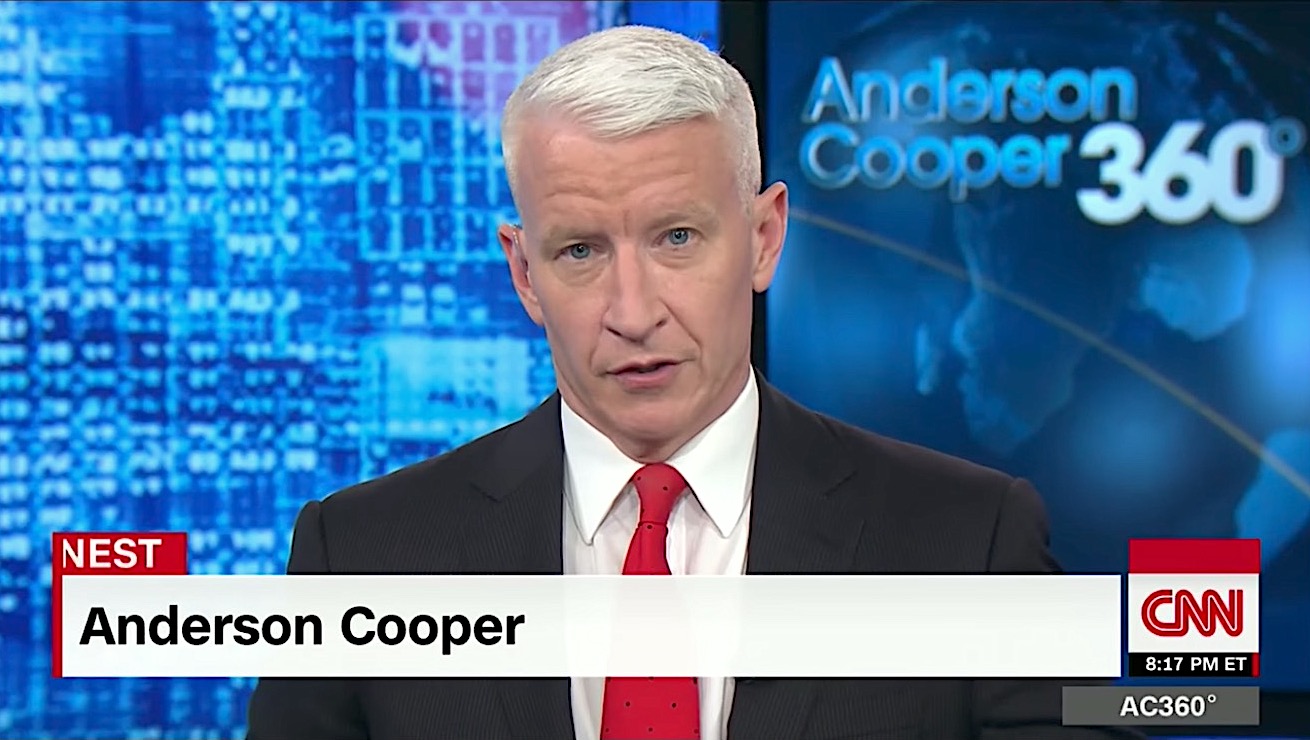Trump's decision to use fallen troops 'for his own momentary personal gain' isn't normal, Anderson Cooper says


A free daily email with the biggest news stories of the day – and the best features from TheWeek.com
You are now subscribed
Your newsletter sign-up was successful
On Tuesday, President Trump dragged White House Chief of Staff John Kelly's son Robert Kelly, a Marine lieutenant killed in Afghanistan in 2010, into his evolving explanation for why it took him 12 days to acknowledge the deaths of four U.S. servicemembers in Niger or contact their families. On Tuesday night's AC360, Anderson Cooper began his analysis with Kelly's documented reluctance to politicize his son's death.
"In everything he said and did not say back then, and everything he's said and done since then, Gen. Kelly has refused to make the shared sacrifice of so many about his own personal loss," Cooper said. "Well, this morning, President Trump took Gen. Kelly's deeply private, searing, and eternal loss and made it about his own momentary personal gain." Trump had suggested that former President Barack Obama had not called Kelly with condolences, a point the White House aggressively pursued with the media.
"President Obama, like Presidents Bush, Clinton, George H.W. Bush, Reagan, and others before them honored the fallen in many ways — phone calls, letters, witnessing the caskets coming home, visiting the wounded," Cooper noted. "They did so frequently, often without bringing reporters along. None of them, Republicans and Democrats alike, wanted it to be about themselves, until now." Trump, "in his mind, simply cannon be wrong," he added, suggesting a motive for Trump stooping to this new level. "And that gives him license, it seems, for a lot," including bringing "his chief of staff's profoundest personal loss into the public realm." Watch below. Peter Weber
The Week
Escape your echo chamber. Get the facts behind the news, plus analysis from multiple perspectives.

Sign up for The Week's Free Newsletters
From our morning news briefing to a weekly Good News Newsletter, get the best of The Week delivered directly to your inbox.
From our morning news briefing to a weekly Good News Newsletter, get the best of The Week delivered directly to your inbox.
Editor's note: An earlier version of this story mischaracterized one of the soldiers' Army role. It has since been corrected. We regret the error.
A free daily email with the biggest news stories of the day – and the best features from TheWeek.com
Peter has worked as a news and culture writer and editor at The Week since the site's launch in 2008. He covers politics, world affairs, religion and cultural currents. His journalism career began as a copy editor at a financial newswire and has included editorial positions at The New York Times Magazine, Facts on File, and Oregon State University.
-
 Samurai: a ‘blockbuster’ display of Japanese heritage
Samurai: a ‘blockbuster’ display of Japanese heritageThe Week Recommends British Museum show offers a ‘scintillating journey’ through ‘a world of gore, power and artistic beauty’
-
 BMW iX3: a ‘revolution’ for the German car brand
BMW iX3: a ‘revolution’ for the German car brandThe Week Recommends The electric SUV promises a ‘great balance between ride comfort and driving fun’
-
 Munich Security Conference: a showdown between Europe and Trump?
Munich Security Conference: a showdown between Europe and Trump?Today’s Big Question Report suggests European leaders believe they can no longer rely on the US for military support – but decoupling is easier said than done
-
 British warship repels 'largest Houthi attack to date' in the Red Sea
British warship repels 'largest Houthi attack to date' in the Red SeaSpeed read Western allies warn of military response to Iranian-backed Yemeni rebels if attacks on ships continue
-
 Houthi rebels claim Red Sea ship attacks
Houthi rebels claim Red Sea ship attacksspeed read Iran-backed Yemeni group vows to escalate aggression towards Israel-linked vessels in revenge for Gaza war
-
 Israel plans next phase of Gaza war as first hostages released
Israel plans next phase of Gaza war as first hostages releasedSpeed read After four-day ceasefire 'we will not stop' until destruction of Hamas, says Israel
-
 Mob storms Russian airport 'looking for Jews'
Mob storms Russian airport 'looking for Jews'Speed Read Plane from Israel surrounded by rioters chanting antisemitic slogans after landing in Russia's Dagestan region
-
 Tuberville's military promotions block is upending lives, combat readiness, 3 military branch chiefs say
Tuberville's military promotions block is upending lives, combat readiness, 3 military branch chiefs saySpeed Read
-
 Ukraine's counteroffensive is making incremental gains. Does it matter in the broader war?
Ukraine's counteroffensive is making incremental gains. Does it matter in the broader war?Speed Read
-
 US commissions first-ever Navy ship in a foreign port
US commissions first-ever Navy ship in a foreign portSpeed Read
-
 British spy chief, Wagner video suggest Prigozhin is alive and freely 'floating around'
British spy chief, Wagner video suggest Prigozhin is alive and freely 'floating around'Speed Read
